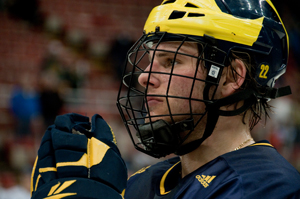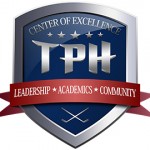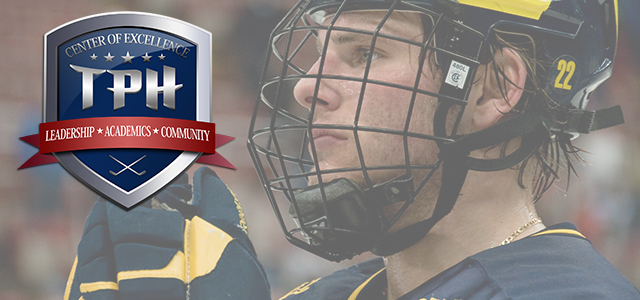Naurato: Now that your season is over…

By Brandon Naurato –
Hockey season is over and there is one question that continually runs through the minds of young players across the country as summer approaches. How do I prepare myself for the upcoming season to be a more dominant player? While trying to find the answer to this question I always refer back to the three R’s.
Re-Charge, Re-Commit, and Re-Focus.
First things first, recharge your hockey battery by taking some time off. All players from youth hockey to the NHL level experience numerous mental and physical battles during the grueling hockey season. Whether you experienced an injury, a lack of ice-time or are just burned out from playing so many games, it is crucial to recharge your battery by taking some time away from the rink and enjoying life. One thing that we always want you to keep in mind is that hockey is just a game and you need to keep it fun. When it’s time to work out, bring the intensity and get your work done on or off the ice. Then, enjoy life! Hang out with friends, go to movies, educate yourself and treat people the right way. There are plenty of life lessons to be learned from the sport of hockey, such as developing a good work ethic, learning how to work with teammates, giving your best effort at all times and having fun. These are just a few great lessons that you can use for the rest of your life that will make you a better player on the ice and more importantly a better person off the ice. And believe me, that time off the ice is important. Taking time away from the sport you love so much and are dedicated to may seem counter intuitive, but it’s essential. Don’t skate, don’t work out. Even if it’s for just a few days, get your mind off of the game and training so that when it’s time to come back, you can focus on it with even more intensity.

The next point of emphasis for the summer is to recommit. After you take some time away from the rink/gym, you need to recommit and set up a plan for the rest of the summer. Some questions you should be asking yourself are:
- Where am I going to train off the ice?
- Who is going to develop my skills on the ice?
- What is my nutrition plan going to look like?
One huge part of hockey specific training is keeping track of your progress. It is crucial that you write everything down in a workout log sheet. How else are you going to know where you want to be if you don’t know where you started from? Each week you want to be improving on your strength and doing more and more. By writing it all down, you are challenging yourself to lift more weight, run faster and continue to improve in all aspects of your training. Not only should you be recording your workouts, but you should be writing down everything that you are putting into your body from a nutritional standpoint. Looking back on my hockey career, the times that I have had the most success on the ice was when I was tracking how I fed my body off the ice. Nutrition is 80 percent of training and if you are filling yourself with junk food after a workout, you are going to take one step forward and two steps back.
The last point in your success guide for summer is to refocus. By refocusing on your hockey career, you are basically going to set up goals for yourself for the summer and next season. You need to analyze yourself as a player and write down three short-term goals for the summer and three long-term goals for the upcoming season. What type of player are you? Think about all of your weaknesses as well as your strengths and set goals on what you can do to become an all-around player. Ask yourself, “Am I a player that needs to lose fat or gain lean muscle? Do I need to improve my foot speed, shot, or stride?” These are a few questions that you can think about before you sit down to write out your goals. Goal-setting is huge for hockey players, but is used by business men and professionals of all ages. By getting into good habits now of setting goals, you are only preparing yourself to be ahead of the curve in the future when you step into the real world
So your first step now is to take a break. Good news, right? Then, once you’ve recharged, it’s time to recommit and refocus so that you can have the season you want to have the next go-around.

